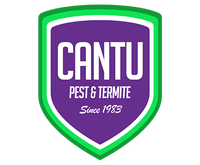What You Need To Know About Mosquitoes
Mosquitoes are a type of outdoor pest. They are small biting flies; to complete their lifestyle, females require blood meals. Mosquitoes feed on both people’s and animals’ blood, piercing their host’s skin using their proboscis- an elongated mouthpart.

Frequently Asked Questions About Mosquitoes
What are mosquitoes?
Mosquitoes are a type of fly-like insect. Female mosquitoes feed on the blood of people and animals to get the protein required to make their eggs. Plant nectar is the main food source for both male and female mosquitoes. These parasitic pests are found living across the entire world. Adult mosquitoes have slender bodies, long legs, narrow, hairy wings, and extended, tube-like mouthparts that they use for feeding. Mosquitoes in the Dallas area come in a variety of colors and color patterns; most are black, dark brown, or black and white.
Are mosquitoes dangerous?
Mosquitoes feed on a wide variety of hosts. This means they have the potential to pick up and transmit a wide variety of diseases and parasites, making them dangerous pests. In fact, because of the diseases they spread, they are considered to be one of the most deadly animals in the world. In the United States, mosquitoes are responsible for transmitting West Nile virus, encephalitis, and the Zika virus. They also infect dogs with potentially fatal parasitic heartworms. In developing and tropical countries they spread deadly diseases like malaria, yellow fever, and dengue fever.
Why do I have a mosquito problem?
Mosquitoes are attracted to properties that have standing water on them. Standing water is where most species of mosquitoes lay their eggs and where their larvae develop into adults. Mosquito populations are greatly influenced by the weather and other environmental conditions. Mosquito populations boom when the spring and summer season is warm and wet. Hot, dry spring and summer seasons tend to produce fewer mosquitoes. Additionally, both females and males feed on plant nectar and pollen as their main food sources. Properties with a lot of flowering plants and trees can attract large populations of mosquitoes.
Where will I find mosquitoes?
Mosquitoes are found gathering around areas of standing water, including baby pools, bird baths, driveways, the tops of trashcan lids and tarps, flower pots, buckets, and pet food dishes. Mosquitoes are most active at dawn and dusk when the weather is cooler – this is the time of day when mosquito bites are most likely to occur. During the heat of the day, mosquitoes hide underneath trees, along fence lines, underneath decks, in heavy vegetation, and in tall grasses.
How do I get rid of mosquitoes?
The best way to solve your property’s mosquito problem is to partner with a local pest control company. When you partner with Cantu Pest & Termite, our knowledgeable and friendly professionals will provide the comprehensive services needed to eliminate mosquitoes and prevent their return. With over 30 years in the pest control industry, we are proud to provide all of our customers with dependable, affordable, and eco-friendly home pest control and commercial pest control solutions. To learn more about eliminating mosquitoes and other household pests from your Dallas, Fort Worth, Houston, or surrounding area home, reach out to Cantu!
How can I prevent mosquitoes in the future?
In addition to our professional pest control services in North Dallas, the following tips can help to prevent problems with mosquitoes on your Texas property:
- Repair or replace window and door screens to keep mosquitoes out of your home.
- Keep gutters clean, so they can direct water away from your home’s exterior.
- Reduce standing water on your property.
- Remove excess debris from your property.
- Keep doors and windows closed as much as possible.
- Limit the number of flowering plants planted near your home’s exterior.
- Keep wading pools, wheelbarrows, flower pots, pet dishes, and other containers upside down when not in use.
